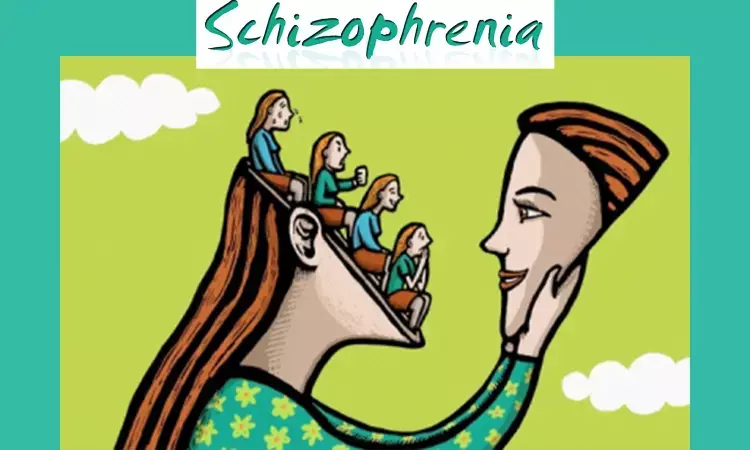- Home
- Medical news & Guidelines
- Anesthesiology
- Cardiology and CTVS
- Critical Care
- Dentistry
- Dermatology
- Diabetes and Endocrinology
- ENT
- Gastroenterology
- Medicine
- Nephrology
- Neurology
- Obstretics-Gynaecology
- Oncology
- Ophthalmology
- Orthopaedics
- Pediatrics-Neonatology
- Psychiatry
- Pulmonology
- Radiology
- Surgery
- Urology
- Laboratory Medicine
- Diet
- Nursing
- Paramedical
- Physiotherapy
- Health news
- Fact Check
- Bone Health Fact Check
- Brain Health Fact Check
- Cancer Related Fact Check
- Child Care Fact Check
- Dental and oral health fact check
- Diabetes and metabolic health fact check
- Diet and Nutrition Fact Check
- Eye and ENT Care Fact Check
- Fitness fact check
- Gut health fact check
- Heart health fact check
- Kidney health fact check
- Medical education fact check
- Men's health fact check
- Respiratory fact check
- Skin and hair care fact check
- Vaccine and Immunization fact check
- Women's health fact check
- AYUSH
- State News
- Andaman and Nicobar Islands
- Andhra Pradesh
- Arunachal Pradesh
- Assam
- Bihar
- Chandigarh
- Chattisgarh
- Dadra and Nagar Haveli
- Daman and Diu
- Delhi
- Goa
- Gujarat
- Haryana
- Himachal Pradesh
- Jammu & Kashmir
- Jharkhand
- Karnataka
- Kerala
- Ladakh
- Lakshadweep
- Madhya Pradesh
- Maharashtra
- Manipur
- Meghalaya
- Mizoram
- Nagaland
- Odisha
- Puducherry
- Punjab
- Rajasthan
- Sikkim
- Tamil Nadu
- Telangana
- Tripura
- Uttar Pradesh
- Uttrakhand
- West Bengal
- Medical Education
- Industry
Biomarker Could Help Diagnose Schizophrenia at an Early Age, claims study

LA JOLLA, CALIF. - Scientists at Sanford Burnham Prebys have discovered how levels of a protein could be used in the future as a blood-based diagnostic aid for schizophrenia. The activity of the protein, which is found in both the brain and blood, affects neural connections in human brains and is uniquely imbalanced in people diagnosed with the condition. The research also provides guidance for future analyses into the molecular basis of this serious, disabling mental disorder.
The study, an international collaboration among groups at Yokohama City University Graduate School of Medicine in Japan and the Department of Psychiatry at Harvard Medical School in Belmont, Massachusetts, was recently published in PNAS.
"This study examined the activity of CRMP2, a protein found in the brain (called a 'cytoskeletal protein') that regulates how neurons make connections with each other," says Evan Y. Snyder, M.D., Ph.D., director of the Center for Stem Cells and Regenerative Medicine at Sanford Burnham Prebys and co-senior author of the study. "CRMP2 also happens to be expressed in lymphocytes in the blood and can therefore be readily sampled in people by doing nothing more than a simple venipuncture.
"There was an abundance of CRMP2 levels in samples from people with schizophrenia compared to people without the disorder. We also saw structural abnormalities in the dendrites of neurons that could potentially be disabling because dendrites play an important role in receiving impulses from other nerve cells in the brain."
Previous research has shown that most people maintain an even balance between the two forms of CRMP2: its active, non-phosphorylated form and its inactive, phosphorylated form. The new research first examined postmortem brain tissue and then blood samples from people with schizophrenia. The research team compared these levels to those in people without the disorder.
The findings indicated that the amount of active CRMP2 was too high in people with schizophrenia and, at least in young people with schizophrenia, was not balanced by an appropriate amount of increased inactive CRMP2. That imbalance between active and inactive CRMP2 could account for some dysfunctions in neural connections.
Measuring an abundance of active CRMP2, particularly if its ratio with inactive CRMP2 is too low, could become a format for a rapid, minimally invasive blood test to support the diagnosis of schizophrenia.
"Schizophrenia can be challenging to diagnose early on or in young patients for a number of reasons," says Snyder. "Pairing a blood test with psychiatric and neurobehavioral exams could help doctors distinguish schizophrenia from other conditions that have somewhat similar symptomologies, such as the manic phase of bipolar disorder or other behavioral, personality, or thought disorders.
"Our results were most striking in people under the age of 40, and even more so in people under the age of 30. An early diagnosis could improve the clinical management of affected individuals as well as accelerate the development of new therapeutic options," Snyder adds.
The researchers now want to dig deeper into the molecular biology of the disease to discover the "regulator" that keeps most people's CRMP2 levels on an even keel. They also want to conduct a larger, multi-center clinical study that compares schizophrenia with other psychiatric disorders. Future research will aim to include a wider range of ethnicities and age groups.1
https://www.pnas.org/lookup/doi/10.1073/pnas.2100032118
Hina Zahid Joined Medical Dialogue in 2017 with a passion to work as a Reporter. She coordinates with various national and international journals and association and covers all the stories related to Medical guidelines, Medical Journals, rare medical surgeries as well as all the updates in the medical field. Email: editorial@medicaldialogues.in. Contact no. 011-43720751
Dr Kamal Kant Kohli-MBBS, DTCD- a chest specialist with more than 30 years of practice and a flair for writing clinical articles, Dr Kamal Kant Kohli joined Medical Dialogues as a Chief Editor of Medical News. Besides writing articles, as an editor, he proofreads and verifies all the medical content published on Medical Dialogues including those coming from journals, studies,medical conferences,guidelines etc. Email: drkohli@medicaldialogues.in. Contact no. 011-43720751


